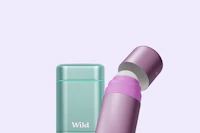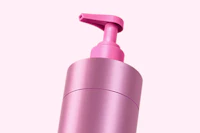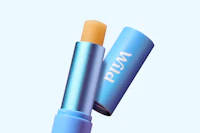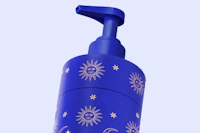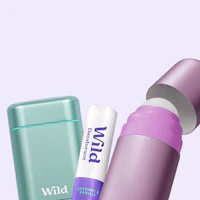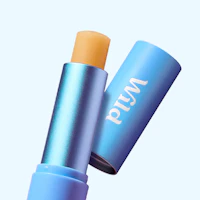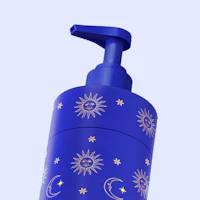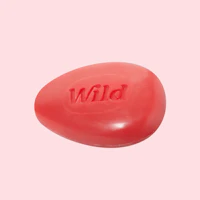- News
Black History Month: what’s happening on the Wild side?
💇♀️ Emma Barber
We’re always looking to learn, develop, and expand our awareness on diversity topics, so many of us here at Wild have been busy consuming extra content during the course of Black History Month, and here’s a selection of things we have covered. Ranging from a broad overview of the story of Black History Month itself, to the Pan African Flag, to some black-owned businesses we spotlighted in our Instagram stories, and even a little bit of linguistic study on AAVE (African American Vernacular Dialect)
What’s the history behind Black History Month?
In the UK, Black History Month has been celebrated in October since 1987. The month is dedicated to remembering the contributions of those people from African and Caribbean heritage, as well as Asian, to this country’s history. The month is an annual reminder to commit to hearing and listening to black voices which may otherwise have been silenced, removed, and ignored from the standardised education and teaching.
Black History Month originated as Black History week in 1926, thanks to Carter G Woodson. Woodson was born in Virginia in 1875, and is known as the father of Black History. As the son of former slaves, he managed to work through the limitations he faced in terms of education and job opportunities open to him and ended up studying in a high school for black students. He went on to get a PhD from Harvard University (the second black person ever to do so). He dedicated much time and effort getting black history promoted in schools, and Black History week has had a very tangible legacy, graduating into Black History Month. In America, Black History Month is in February, because it coincides with the births of former President Abraham Lincoln and Frederick Douglass, as both men played a significant role in helping to end slavery. In the UK, it is in October to coincide with the start of the academic year.
Whether you choose to support black-owned businesses, listen to black artists, read up on a part of black history you’ve not heard of (or perhaps only heard of through a different lens), expand your awareness of overt, covert, and institutionalised racism and how to challenge it, or something else, Black History Month is a great time to boost your awareness and engagement in these topics.
The Pan African Flag
You may have spotted our Flag Fridays, where we work through LGBT+ flags, however these aren’t the only flags welcome on the Wild side.
The Pan-African flag, (red, black, green horizontal stripes), which can be called the Afro-American flag or Black Liberation flag, was created in 1920 by the UNIA (also known as UNIA-ACL, The Universal Negro Improvement Association and African Communities League) in response to the 1920s song “Every race has a flag but the c**n”. This was at a time when songs that belittled and mocked African Americans were popular in America, and these often stemmed from Minstrel-type performances and included examples of stereotype and AAVE (African American Vernacular English) which we’ll look at in a moment.
According to the UNIA, these are the meanings for each colour: Red: the blood that unites all people of Black African ancestry, and the blood shed for liberation Black: black people whose existence as a nation, though not a nation-state, is affirmed by the existence of the flag. The flag also helps unite the diaspora of black people Green: the abundant natural wealth of Africa
Marcus Garvey, founder of the UNIA (Universal Negro Improvement Association), was behind the creation of this flag. In response to the derogatory song, he said, “show me the race or the nation without a flag, and I will show you a race of people without any pride”.
Black-owned businesses to go wild about!
Wild discovered/wanted to highlight some amazing black-owned businesses on our Instagram stories during October, but we thought we’d jot down a selection here too!
Carra is a platform that allows you to find exactly the right products for your hair type. We think it's really cool because it brings together machine learning and a 1-1 video consultation with a hair expert to create a custom routine, complete with product and ingredient recommendations all tailored to your individual hair textures and concerns.
Carra was founded by Winnie Awa in July 2020. Prior to Carra, Awa founded Antidote Street - an online shopping destination for Afro & Multi-textured Hair Products. When Awa set out to make Carra to streamline haircare and make sure customers aren't buying products that are going to sit in their cupboards unused.
Oja is a one-stop shop for ethnic groceries and cultural foods. Their mission is to make foods from all cultures accessible from anywhere in the world by offering an online supermarket offering delivery across the UK within 24 hours. They started off with African and Caribbean groceries but you'll soon see Indian, Arabic, Greek and many more to come.
This app was launched by Mariam Jimoh (London born and of Nigerian heritage), designed to bring a wider selection of global foods to the booming world on online delivery apps, helping make long trips to the supermarkets, scanning entire aisles for the perfect plantain, ‘nduja, or kimchi, a thing of the past.
Black Ballad is a community platform of black women that exists to tell stories for, by and about black women that other media platforms can't or won't tell. When you become a member, you get access to 100s of lifestyle articles and videos created and edited by black women. Check out their Instagram too!
Black Ballad was founded by Tobi Oredein in 2014. Day to day, Tobi works to make sure black women feel like they can do anything and face the world on their own terms. As the boss, she explains her key role as making sure the team has the environment, tools and resources to thrive. You can read up on the whole team here
AAVE (African American Vernacular English)
The song above, and those similar to it at the time, were fairly common and frequently used AAVE (African American Vernacular English). We said we’d look a little further into AAVE, and we found a fascinating article from Babbel on this (can you tell we have a few linguists here at Wild HQ?)
Fam, what’s the tea on AAVE - people calling it "just internet slang" seems a bit sus.
Those are examples of AAVE, and it’s likely that you know and may use many more, especially with the rise in popularity of series like Ru Paul’s Drag Race, Queer Eye, and the ever-popular Sex Education. Babbel explains the history of AAVE coming from the drag scene, which began as an underground movement in cities like Berlin, London, and New York, especially in Harlem, a predominantly black community. Linguistics professor Rusty Barrett explains that “African-American women in particular were symbolic of a strong femininity, and became a way for gay men to claim femininity in a stance against straight ideas of masculinity.” This is why there is a cross-section of sorts here when it comes to the origins of AAVE, between the black communities and drag communities.
So should you be using these terms? As always with language, it fully depends on context, so there’s no clearly-defined yes or no answer. (Ah, the joys of languages eh?) It’s important to recognise the rich historical and cultural tapestry behind many words which have become normal to see in the worlds of social media and advertising, so that you can make an informed decision about whether or not it’s right to use them. There’s a big difference between something being normal, and something being normalised.
A key example given in the article, is when companies use the language in order to profit from having an association with black communities (for example), but without giving anything back/highlighting the culture from which it borrows. This leads to cultural appropriation as the powerful company is benefitting from an association to an ‘othered’ group, i.e. something different and desirable, or interesting, but issues such as racism (systematic, institutional, you name it) and homophobia/drag-phobia remain depressingly present and unaddressed.
Tremeer sums it up best: “Black individuals and LGBT people are marginalized: Their cultures are seen as unprofessional, they frequently live below the poverty line, they are targeted for prosecution. Yes, words are just words. But as long as people are still oppressed because they belong to certain groups, the usage of their vernacular by those on top — white people, rich people, corporations — will always have sinister undertones.”
Phew! We know this article is a little longer than our blog posts usually are - but hey, we had a lot to share! We hope you’ve enjoyed having a read through here, and if you have anything you want to ask, suggest, or talk about with Wild, please do get in touch either via our social media, or at [email protected] and we’ll be happy to get back to you ASAP
